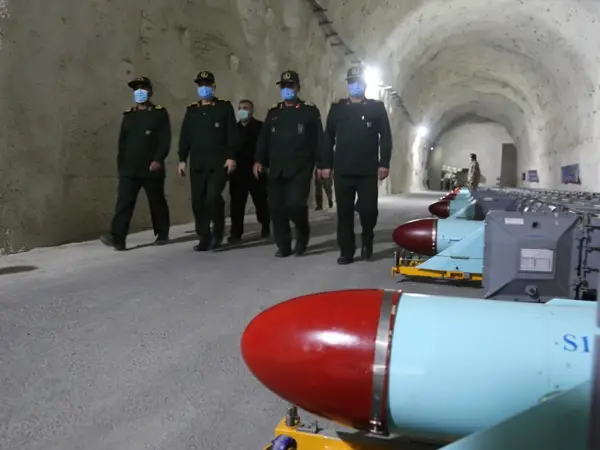Iran's foreign ministry warned Iraqi authorities on Monday that Tehran would not tolerate the use of Iraqi soil by third parties to conduct attacks against Iran.
“The central government of Iraq has the responsibility to ensure that its territory is not used as a base for attacks by third parties against Iran,” the ministry’s spokesman Saeed Khatibzadeh told reporters at his weekly press conference in Tehran Monday. "We urge the Iraqi government to end insecurity in its borders once and for all."
“Iraqi territory was used several times in the past against Iran by third parties including terrorist groups such as Kurdish militants, the United States and the Zionist entity,” he said adding that Tehran had repeatedly warned Iraqi authorities about the use of territory by third parties to attack Iran.
The comment came a day after Iran's Revolutionary Guards (IRGC) targeted the capital of Iraq's autonomous Kurdistan, Erbil, with over a dozen ballistic missiles. In a statement hours after the attack Sunday, the IRGC took responsibility for targeting Erbil to destroy a "strategic center for conspiracy and evil of the Zionists" for Israel's "recent crimes" against Iran.
The IRGC statement did not specify Israel's "recent crimes" against Iran but on Sunday media including Iran's English language Press TV, claimed the attack was in retaliation for an Israeli airstrike on the Syrian capital of Damascus last Monday in which two IRGC officers were killed. Press TV also called Iran's retaliation a "wake up call for Iraqis about Israeli danger".
But it remains unclear why that last incident suddenly provoked Tehran while Israeli regularly bombs Iranian bases in Syria.
Another possible explanation is an alleged Israeli drone attack on a base inside Iran. Lebanon's pro-Hezbollah Al Mayadeen TV said on Monday that an Israeli base in Erbil led an attack by six drones on a Revolutionary Guard base in Kermanshah, capital of the western province of Kermanshah, in January.
Pro-Iran Kata'ib Hezbollah of Iraq in a statement Monday quoted by the IRGC-linked Tasnim news agency also claiming the operation was launched "in reaction to Israeli drone bombing of locations inside Iranian territory from inside Iraq" and said this was the start of a "new kind of conflict" in Iraq.
These could refer to loud explosions heard in western Iran, including Kermanshah, on January 15 for which Iranian authorities did not offer a clear explanation. Social media reports at the time said there was anti-aircraft activity and one explosion near or at a military base.
Several other mysterious incidents at Iran’s nuclear and military sites since July 2020 have also been attributed to Israel, including the assassination of a top Iranian nuclear official.
Iraqi officials, including Prime Minister Mustafa al-Kadhimi and influential Shiite Cleric Muqtada al-Sadr whose party won a majority in the parliament last year, have strongly condemned the Iranian attack on Erbil.
In a tweet Sunday, Al-Kadhimi said this was "an attack on the security" of Iraqi people. Iraq's foreign ministry has summoned the Iranian ambassador to protest to the attack.
Press TV quoted the secretary general of pro-Iran Harakat Hezbollah al-Nujaba as saying that the Kurdistan region authorities “provide Mossad agents with refuge” which makes it allowable for any party to target the “Zionist spies.”
US officials on Sunday appeared to suggest that Iran’s missile attack on Erbil would not impact the chances of concluding a nuclear agreement with Tehran but some US lawmakers and former officials have urged President Joe Biden to end the talks in Vienna to revive the 2015 nuclear deal between Iran and world powers, Joint Comprehensive Plan of Action (JCPOA).
IRGC’s Sunday attack came during a pause in the Vienna nuclear after a last-minute Russian demand for US guarantees it can trade freely with Iran despite Western sanctions imposed for its invasion of Ukraine. Khatibzadeh insisted on Monday that Moscow's demands had nothing to do with the delay in signing an agreement as it was the United States that had to make a decision to accept Iran's demands.
